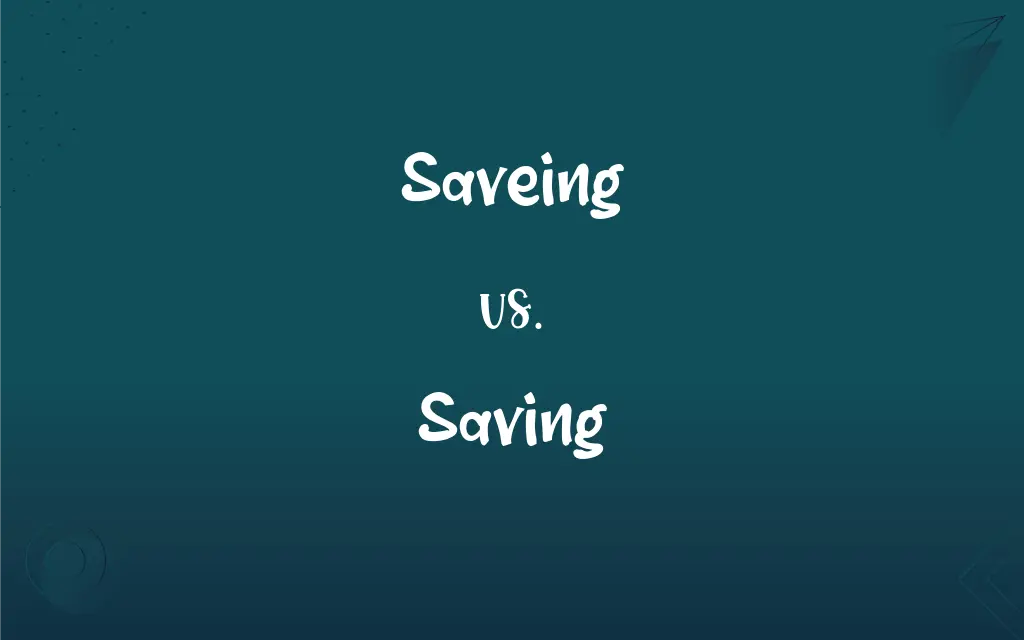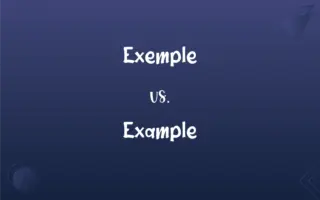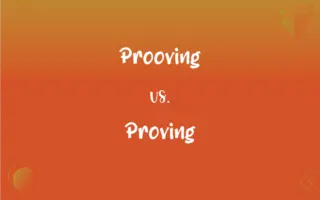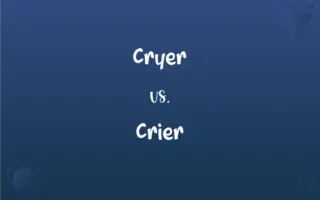Saveing vs. Saving: Mastering the Correct Spelling
Edited by Aimie Carlson || By Janet White || Updated on March 8, 2024
"Saveing" is incorrect, while "saving" is the correct spelling. Saving refers to the act of preserving or setting aside resources, especially money.

Which is correct: Saveing or Saving
How to spell Saving?

Saveing is Incorrect

Saving is Correct
ADVERTISEMENT
Key Differences
Use the mnemonic, "Savvy people know, saving drops the 'e'."
Recall that 'saving' follows the rule: drop the 'e' before adding 'ing.'
Think of "save" as the base; just add 'ing' without an extra 'e.'
Remember, 'saving' aligns with other similar words like 'having' or 'loving.'
Associate 'saving' with 'giving' – both end in 'ing' without an extra 'e.'
ADVERTISEMENT
Correct usage of Saving
She spends a lot of time saveing her work on the computer.
She spends a lot of time saving her work on the computer.
They are interested in saveing the environment.
They are interested in saving the environment.
Are you saveing that dessert for later?
Are you saving that dessert for later?
He's been saveing up vacation days for a big trip.
He's been saving up vacation days for a big trip.
I am focused on saveing money for my future.
I am focused on saving money for my future.
Saving Definitions
Pertaining to something that prevents waste or loss.
He installed a water-saving showerhead in his bathroom.
Rescue from harm or danger.
The firefighter's quick saving of the child was heroic.
The act of setting aside money for future use.
Her saving habits allowed her to buy a new car.
A reduction in cost or expenditure.
The coupon offered a significant saving on her grocery bill.
The amount of money kept in a bank or similar.
His savings account had grown significantly over the years.
Rescue from harm, danger, or loss.
Avoidance of excess expenditure; economy.
A reduction in expenditure or cost.
Saving Sentences
He's saving for a down payment on a house.
She's been saving all her receipts for tax season.
They're saving a seat for you at the concert.
Saving energy reduces your utility bills.
Are you interested in saving the whales?
Saving time means being more efficient with your tasks.
They're saving their best player for the second half.
Start saving early to take advantage of compound interest.
I'm saving the last piece of cake for you.
I recommend saving a copy of your work frequently.
She's saving for a trip to Europe next summer.
He's been saving up for a new bike.
Saving money can help you become financially secure.
Are you saving those magazines or can I recycle them?
He's been saving his allowance for a video game.
Saving historical buildings is important for cultural heritage.
Saving leftovers is a great way to reduce food waste.
They're saving for their child's college education.
She's saving her energy for the marathon.
Saving water is important in drought-prone areas.
Saving regularly can help you handle unexpected expenses.
Saving Idioms & Phrases
Saving for a rainy day
Setting aside money or resources for future use in times of need.
She's always been good at saving for a rainy day.
Saving grace
A redeeming quality, especially one that compensates for one's shortcomings.
His sense of humor was his saving grace during the job interview.
FAQs
What is the verb form of saving?
The verb form is 'save.'
Which preposition is used with saving?
Prepositions like 'on,' 'for,' and 'in' are used (e.g., 'saving on costs').
What is the plural form of saving?
The plural form can be "savings," especially referring to money saved.
Which vowel is used before saving?
The vowel 'a' is used in 'saving.'
Why is it called saving?
It's derived from the verb 'save,' meaning to keep safe or set aside.
What is the pronunciation of saving?
Pronounced as /ˈseɪvɪŋ/ (SAY-ving).
What is the root word of saving?
The root word is 'save.'
Is saving a noun or adjective?
Saving can be both a noun and an adjective.
Is saving a vowel or consonant?
The word 'saving' contains both vowels and consonants.
Is the word saving imperative?
No, it's not an imperative form.
What is the singular form of saving?
The singular form is "saving."
Is saving an abstract noun?
Yes, when referring to the act of saving, it is an abstract noun.
Is saving a collective noun?
No, it's not a collective noun.
Is the saving term a metaphor?
It can be used metaphorically in certain contexts.
How many syllables are in saving?
There are two syllables in 'saving.'
How do we divide saving into syllables?
It's divided as 'sav-ing.'
What is the opposite of saving?
"Spending" is often considered the opposite.
What is the first form of saving?
The first form is 'save' (verb).
Which conjunction is used with saving?
Conjunctions like 'and' or 'but' can be used (e.g., 'saving and investing').
Is saving a negative or positive word?
It's generally positive, associated with prudence and safety.
What part of speech is saving?
It's a noun and an adjective.
Is saving an adverb?
No, saving is not an adverb.
What is another term for saving?
"Economizing" or "conserving" are similar terms.
What is the third form of saving?
The third form is 'saved' (past participle).
Which article is used with saving?
Both 'the' and 'a/an' can be used depending on the context.
Is saving a countable noun?
As a noun, it's usually uncountable; 'savings' can be countable.
What is a stressed syllable in saving?
The first syllable 'sav' is stressed.
Which determiner is used with saving?
Determiners like 'this,' 'my,' or 'the' can be used.
What is the second form of saving?
The second form is 'saved' (past tense).
How is saving used in a sentence?
"Her saving strategy helped her achieve financial independence."
About Author
Written by
Janet WhiteJanet White has been an esteemed writer and blogger for Difference Wiki. Holding a Master's degree in Science and Medical Journalism from the prestigious Boston University, she has consistently demonstrated her expertise and passion for her field. When she's not immersed in her work, Janet relishes her time exercising, delving into a good book, and cherishing moments with friends and family.
Edited by
Aimie CarlsonAimie Carlson, holding a master's degree in English literature, is a fervent English language enthusiast. She lends her writing talents to Difference Wiki, a prominent website that specializes in comparisons, offering readers insightful analyses that both captivate and inform.


































































